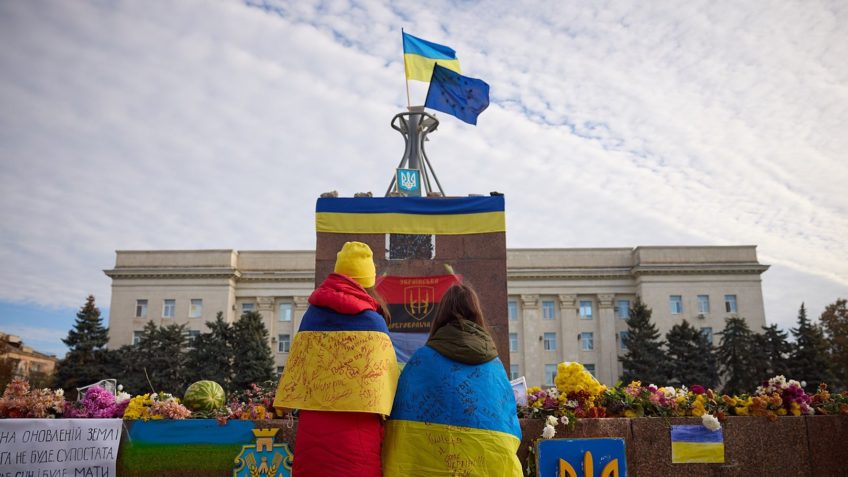
Resilience of the Ukrainian people and their appreciation for democracy show that the country’s reconstruction will come alongside joining NATO and aligning with the European Union, writes Nataliya Popovych
Many people ask me what it’s like to run a business in Ukraine during wartime. For me, being alert is a top priority. Many of my colleagues are experiencing the tragedy of losing a loved one. Others are suffering from not seeing family members or friends who are serving in the army. And there are also those who are worried about their relatives leaving the front lines or who are in occupied territories.
I lead 5 organizations in Ukraine: 1) a multidisciplinary health consultancy; 2) a public relations agency; 3) a company of “public affairs”; 4) a social initiative dedicated to supporting Ukrainian artists; It is 5) an NGO dedicated to themes of justice, democracy and peace. In all of them, the meetings begin by checking how people are feeling and their working condition and productivity. We meet online for monthly team-wide updates to share learnings and achievements.
These teams meet weekly. We increase our energy and collaboration by organizing regular face-to-face meetings in Kyiv. The meetings unite the entire group in celebrating life, our resilience and the significant results we have achieved for our country.
We quickly learned to listen to each other and accept that people experience different tragic circumstances and react to them differently. This applies to both psychological and physical levels – some need more space, others more engagement to survive.
Of course, there is fatigue after more than 2 years of war. But we are all driven by the same goal: Ukraine’s victory. And this commitment to our country is a collective path.
For us, being together doesn’t just mean working, having a job or pursuing a professional career. There is a call to help Ukraine survive and prosper, regardless of the challenge of war.
Before Russia’s attack, Ukraine had no clear reason to join NATO (North Atlantic Treaty Organization). Now this seems like the next logical step to take. The movement will be beneficial both for the country’s security and for the advancement of NATO as a relevant organization for the defense of freedom in the 21st century.
Likewise, based on common values, an alliance between Ukraine and the EU (European Union) is, more than ever, a natural choice. Ukrainians have demonstrated how quickly they are capable of implementing reforms, which is why adapting to the rules of the European bloc seems completely feasible. It is worth noting that in the last 10 years, Ukraine has undergone more reforms than many countries are capable of over several generations.
Democracy is both a choice and a foundation for Ukraine. This model of government has long been our traditional approach (the Constitution of statesman Pylyp Orlykof 1710, was one of the first in the world to regulate the rights of the public and the duties of public authority, to provide for the separation of powers and to empower local governments). Ukrainians have already defended democratic choice in the course of 3 revolutions in the last 30 years and will continue to do so.
When the war ends, the journey of reconstruction will open the doors to an even better recovery.
Ukraine has built a solid agricultural and technological farming system and has high IT qualifications. It is the 4th largest country in the world in outsourced services in this field, and also stands out in the Defense area. In addition, it has powerful creative industries and a growing number of family businesses.
The country has relevant cities with distinct identities and well-defined plans for their reconstruction, some of which have even been adopted and supported by certain democratic countries.
In July 2022, our government presented the National Recovery Plansuggesting that some European nations, in addition to the United States and Canada, each take on the reorganization of specific regions after the destruction inflicted by the Russian Army.
A good example of how this support and collaboration can evolve is Mykolayiv, a port city on the Black Sea and an important cereal export center. Mykolayiv has already been rebuilt with the help of Denmark, which has contributed its best urban planning practices and built an inclusive, well-being approach for the city’s vulnerable population.
Source: https://www.poder360.com.br/opiniao/o-futuro-da-ucrania-no-pos-guerra/

